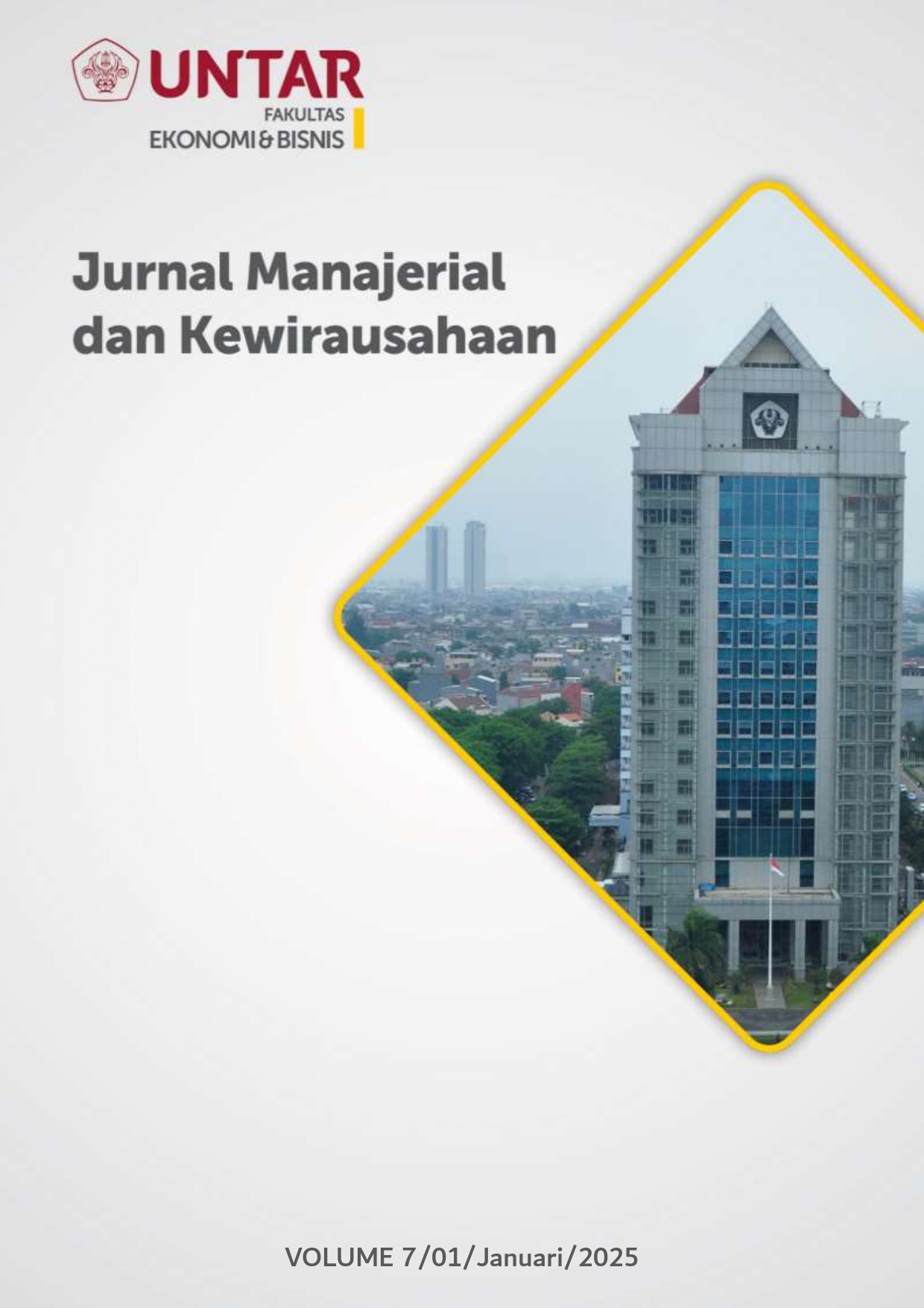Faktor Kepribadian dan Keluarga dalam Membentuk Minat Wirausaha Mahasiswa
Main Article Content
Abstract
Entrepreneurship has an important role in the economic development of a country, especially in creating new jobs and encouraging innovation. In Indonesia, entrepreneurship continues to be developed to overcome the high unemployment rate, especially among the younger generation. Students, as part of the educated generation, have great potential to become entrepreneurs who contribute to economic growth. Universities have an important role in forming entrepreneurial interests and abilities among students. However, not all students are interested in entering the world of entrepreneurship, because this interest is influenced by various factors, both internal and external. One of the internal factors that has a significant influence on interest in entrepreneurship is personality. Personality reflects how a person thinks, feels, and acts, which ultimately influences their decisions, including choosing a career as an entrepreneur. The aim is to find out whether there is an influence of personality on interest in entrepreneurship and whether there is an influence of family environment on interest in entrepreneurship. The population of this research is Tarumanagara University student’s class 2020-2022. The sample used in this research was 100 Tarumanagara University student respondents. The sampling technique used was non-probability sampling with a purposive sampling method. The research tool used in this research is SEM-PLS 4. Overall, the results of this research are first, Personality influences the Entrepreneurial Interest of Tarumanagara University Students. Second, the family environment influences the entrepreneurial interest of Tarumanagara University students.
Article Details
Section

This work is licensed under a Creative Commons Attribution-NonCommercial-ShareAlike 4.0 International License.
This work is licensed under a Jurnal Muara Ilmu Ekonomi dan Bisnis Creative Commons Attribution-ShareAlike 4.0 International License.,/p>
References
Arikunto, S. (2020). Dasar-Dasar Evaluasi Pendidikan. Jakarta: Bumi Aksara.
Ajzen, I. (1991). The Theory of Planned Behavior. Organizational Behavior and Human Decision Processes, 50(2), 179–211. https://doi.org/10.1016/0749-5978(91)90020-T
Echchabi, A. (2020). The Impact of Service Quality on Customer Satisfaction in the Banking Sector: Evidence from Morocco. Journal of Business and Retail Management Research, 14(1), 1-12.
Felya, F. & Budiono, H. (2020). Pengaruh Theory of Planned Behavior terhadap Minat Kewirausahaan Mahasiswa Universitas Tarumanagara. Jurnal Manajerial dan Kewirausahaan, 2(1), 131-140. https://doi.org/10.24912/jmk.v2i1.7453
Ghozali, I., & Latan, H. (2020). Partial Least Squares: Konsep, Teknik dan Aplikasi Menggunakan Program SmartPLS 3.0. Semarang: Badan Penerbit Universitas Diponegoro.
Ghozali, I. (2020). Aplikasi Analisis Multivariate dengan Program IBM SPSS 25. Semarang: Badan Penerbit Universitas Diponegoro.
Ghozali, I. (2021). Partial Least Squares: Konsep, Teknik, dan Aplikasi Menggunakan Program SmartPLS 3.0 untuk Penelitian Empiris. Badan Penerbit Universitas Diponegoro
Hair, J. F., Black, W. C., Babin, B. J., & Anderson, R. E. (2010). Multivariate Data Analysis (7th ed.). Upper Saddle River, NJ: Pearson Education.
Kesrasetda. (2020). Laporan Tahunan Kesrasetda Provinsi DKI Jakarta 2020.
Moussa, F., & Kerkeni, S. (2021). The Impact of Family Environment on Entrepreneurial Intentions. Entrepreneurial Journal, 15(2), 233–250.
Pasuria, R. (2022). The Role of Digital Marketing in Enhancing Customer Engagement in Smes: A Review of Literature and Future Research Directions. Journal of Marketing Research, 59(3), 345-360.
Pereira, V. (2017). Marketing Strategies for Small Businesses in The Digital Age: A Case Study Approach. International Journal of Business and Management, 12(4), 45-60.
Permatasari, M. A., & Agustina, N. (2018). Pengaruh Kepuasan Pelanggan Dan Kepercayaan Merek Terhadap Loyalitas Merek Smartphone Samsung. Jurnal Manajemen dan Bisnis, 4(2), 123-134.
Siswanto, B. (2020). Psikologi Kepribadian Untuk Pengembangan Individu. Jakarta: Erlangga.
Soelaiman, L., Puspitowati, I., & Selamat, F. (2022). Peran Model Panutan terhadap Intensi Berwirausaha Mahasiswa melalui Penerapan Teori Perilaku Terencana. Jurnal Muara Ilmu Ekonomi dan Bisnis, 6(2), 320-329. https://doi.org/10.24912/jmieb.v6i2.20387
William, V., & Hetty, H. (2022). The Role of Family Environment in Entrepreneurial Interest Among Students. Journal of Entrepreneurship, 15(3), 123-135.

